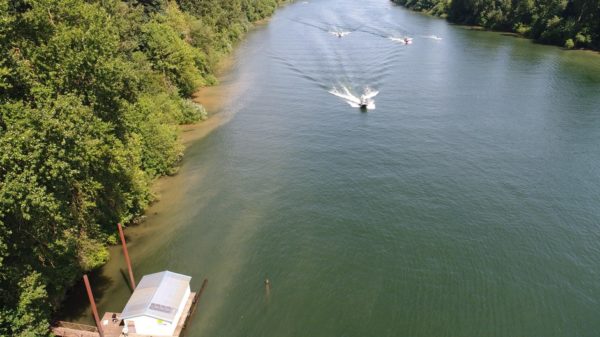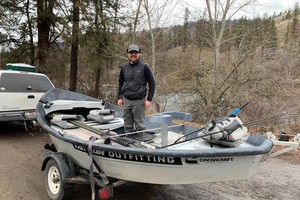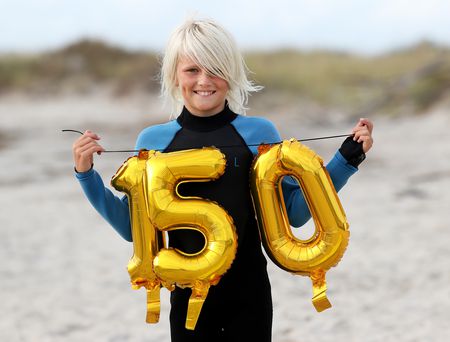
An aerial image illustrates erosion along the bank of the Willamette River.
Courtesy of Willamette Riverkeeper
Federal officials have warned the Oregon State Marine Board that wake surfing on the Willamette River could pose a serious risk to threatened salmon and steelhead populations.
Critics say the board’s failure to restrict this controversial water sport could leave the state in violation of the Endangered Species Act.
The Marine Board has been considering new regulations for wake sports that create large waves on the Willamette River. Wake surfers use big, heavy boats to create waves that are big enough to surf.
The National Oceanic and Atmospheric Administration recently sent a letter to the marine board’s chairwoman flagging the problems those waves could cause for five species of salmon and steelhead that are protected by the Endangered Species Act.
Marc Liverman, NOAA’s Willamette River branch chief, said the young fish that are most vulnerable to wake surfing waves are only about an inch long.
“This kind of wave action is not a typical thing that they face,” Liverman said. “The most dramatic danger for the fish is wake stranding, which is when they get tossed up on the shore.”
The waves can injure or kill these fish and make them more likely to get eaten by predators, he said. Federal and state agencies are already working to reduce multiple threats to Willamette River salmon and steelhead populations, including dams, development and sea lions.
“Despite all of our best efforts in all of these other areas, the fish are not responding the way we would like them to,” Liverman said. “And we really don’t want new threats coming along to undo the effort that we’ve already made.”
Last year, the environmental group Willamette Riverkeeper petitioned the state to restrict the size of wake surfing boats to protect fish, wildlife habitat and private property that can be damaged by the large waves. The state declined to consider the petition.
Now, the group is threatening to sue the Marine Board and the Oregon Department of State Lands if the agencies fail to regulate the impacts of wake surfing on threatened species of salmon and steelhead.
“They need to create rules that say there are some stretches of the Willamette River that don’t make sense for some machines to be doing their thing,” said Willamette Riverkeeper Executive Director Travis Williams. “This is no different than a public lands issue where some areas are off-limits to off-roading, off-limits to ATVs. This is the same kind of thing.”
In a letter sent last month, Kim Kratz, assistant regional administrator for the Oregon Washington Coastal Area office, asked the Marine Board to consider the impacts to protected fish as it examines the need for regulation of wake sports on the Willamette River.
“We expect that wake sports are likely to have a significant adverse impact on those listed species and their critical habitat by injuring and killing individual fish when, for example, the surge and wakes caused by artificial waves from passing boat and wake sport participants wash juvenile fish onto the shore,” she wrote.
She noted that it is her agency’s job to enforce the Endangered Species Act, which makes it illegal to harm threatened salmon and steelhead.
The agency has offered to work with the Marine Board to minimize impacts to fish as it develops regulations for wake sports on the Willamette.
The Oregon State Marine Board did not respond to a request for comment.







Recent Comments